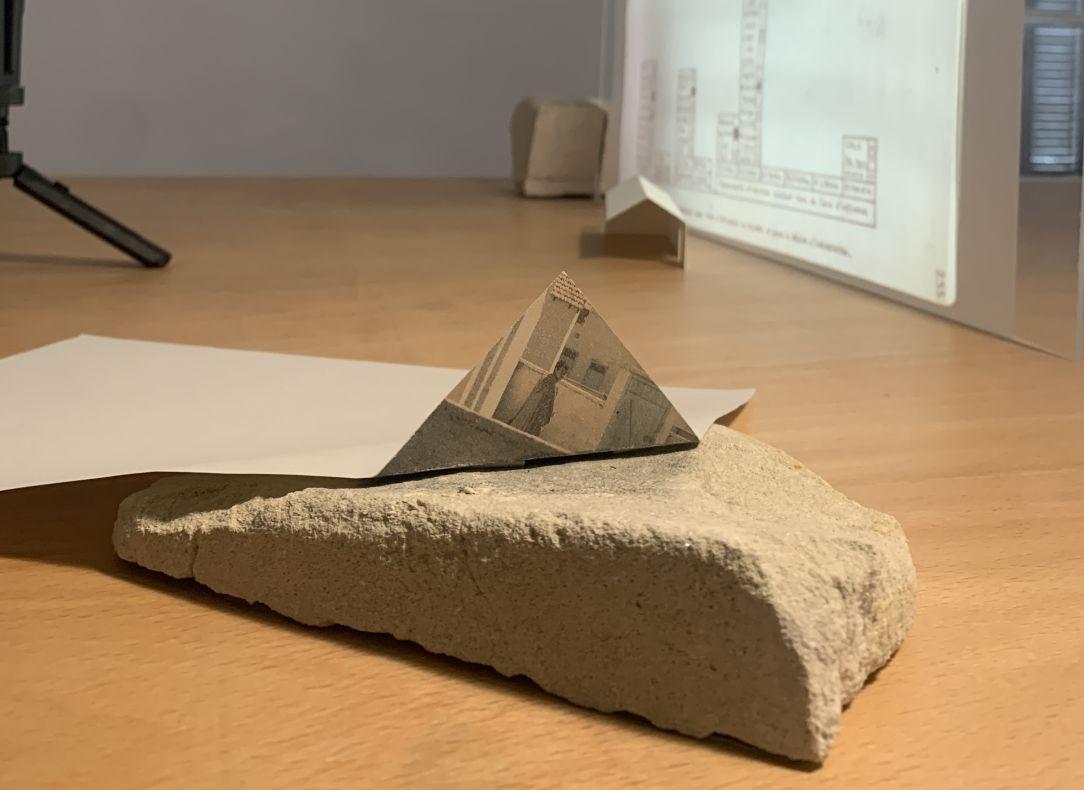
1000 villages
The exhibition 1000 VILLAGES with artist Massinissa Selmani investigates the structure of history in Algeria and the 70´s and the urbanism plans to create a new model for society. Selmani’s point of departure was an archive of press clippings about an urban planning project initiated by the Algerian government in the mid- 1970s under the aegis of the “Agrarian Revolution”. The goal of this urban planning project was to redevelop the agricultural sector of Algeria’s economy by collectivizing its infrastructure. Selmani was fascinated by how the 1000 socialist villages project transformed from built forms into a sort of political rumor: people knew some villages had been established, but few had been to construction sites and even fewer knew why the project had been suspended.
The curator of the exhibition Natasha Marie Llorens writes: “Massinissa Selmani’s work is fundamentally concerned with the structure of contemporary history, or how people make sense of the events they are living through. The artist’s aesthetic process is elliptical, yet rigorous: he sifts through anecdotal language, faded, and idiosyncratically categorized newspapers, poetry, philosophy, and rumors. Selmani is an artist who draws: the medium’s modesty mirrors his dedication to the experience of those who stand outside the grand narratives of history, or adjacent to the centers of power”.
In 2021, Natasha Marie Llorens invited Massinissa Selmani to work collaboratively on an evolution of a work he had presented at the Venice Biennial in 2015 entitled 1000 Villages. Selmani and Llorens’ inquiry was not scientific but rather an exploration of the bright effervescence of the 1000 villages in the landscape of contemporary Algerian history. They were curious about how it flared to life, whether and how it represented the interests of the rural inhabitants who had been dispossessed of land under colonial rule or displaced during the long war of Liberation. Between 2021 and 2023, Selmani and Llorens spoke with architects, filmmakers, writers, artists, sociologists, academics, journalists, and regular Algerians who had either lived through the period during which the 1000 socialist villages were being built, or had associations with a period of Algerian history that remains vivid in the nation’s collective imagination as a relatively prosperous time of optimistic construction and nationalist unity. They followed faint traces people kept in their memories about how the 1000 villages functioned symbolically as well as analyses that might help explain why this initiative died away with neither announcement nor resolution.
This exhibition has been made in collaboration with rhizome, where a first iteration of the project was presented. rhizome is a contemporary art gallery based in Algiers promoting emerging and established contemporary artists, with a focus on art from Algeria and its diasporas.
The work by Massinissa Selmani (1980, Algeria) has been presented at Venice Biennale, Palais de Tokyo, Sharjah Biennial 13, 11th Dakar Biennial, Modern Art Oxford and the Biennale de Lyon among other art venues. In 2015, he received a special mention at the 56th Venice Biennale, curated by Okwui Onwezor. Massinissa Selmani was nominated to the Marcel Duchamp Prize in 2023.
A public program unfolds during the exhibition period, providing context along two parallel strands. The first strand establishes a frame of reference for Selmani’s artistic strategies and ways of working. The second creates space for discourse around the Algerian socio-political context since the 1960s, particularly the specificities of a political plan enacted through a socialist architectural project in the 1970s – the traces of which have been core material for Selmani.
With support by Kulturrådet, Stockholms Stad and Region Stockholm. We would like to thank rhizome and Institut Français Suède for their collaboration.